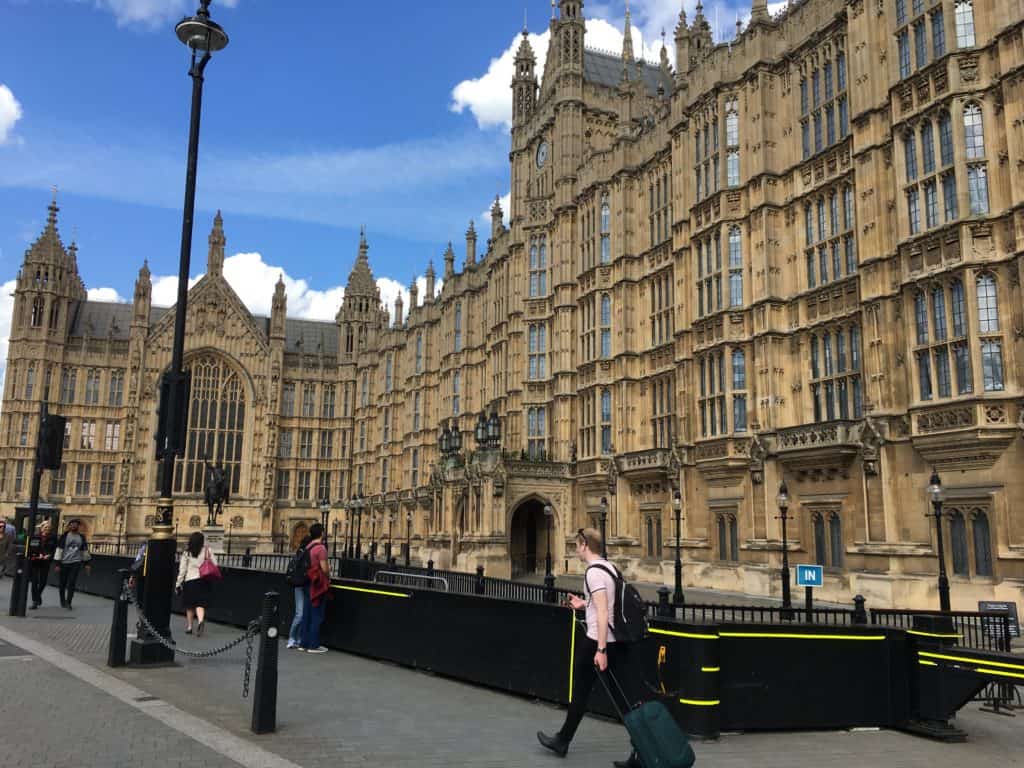
When I told my parents I wanted to study abroad, the first question they asked was: Is it safe? I had to assure them that the program I wanted to participate in would be safe for me, a 21-year-old female. But my assurances did not stop them from asking more questions and researching for themselves the safety of living and studying abroad. If you are a student, or the parent of a student, this question is something you should consider.
So, is it safe to Study Abroad? Yes, studying abroad can be a safe experience for students if you research your options, work closely with your college when determining the specific program you want to pursue, prepare appropriately, and use common sense when traveling and during your stay in a foreign country.
Overview Regarding Safety Abroad
American Students Believe Study Abroad is Safe
Last year, over 300,000 American college students studied abroad. The number of students participating each year continues to grow. For Americans, Europe is the most popular destination with over half of the U.S. study abroad student population.
Safety and stability of the host nations is one of the major draws for American students. The four countries leading the field for US students are, in order: United Kingdom, Italy, Spain, and France. Outside of Europe, China leads the field. Recently the popularity of studying in South Africa, South Korea, Peru, Thailand, Costa Rica and Japan has increased.
Determine Your Options
Selecting a study abroad program is similar to selecting a college to attend. Considerations include where you want to live, what programs are available, what does the program have to offer, and what are the benefits and challenges of the program?
The first question seems the simplest. What Foreign Destination is Attractive to You? Once you determine where you want to study, then you can begin determining its pros and cons. Is it Safe? Is it in a part of the world more dangerous than you care to experience? Does the United States government consider it a safe place to live, especially for American students?
Once you’ve determined the location, then finding an academic program that fits your degree plan is the next step. There are thousands of colleges in the country that offer study abroad experiences. You just need to make sure the college you choose to attend offers a broad range of opportunities that fit your desires.
Work Closely with Your College
Once you’ve settled on a college, the destination of your study abroad experience and the academic program, you must work collaboratively with the college to ensure that your safety is of primary concern.
Most study abroad programs and host universities take extensive measures to ensure the safety of their students. College faculty and study abroad program staff understand the challenges inherent in the destination countries. Be sure to heed their instructions and warnings.
Many college study abroad programs offer various Student Guides, Parent Guides and Frequently Asked Questions documents that offer checklists and recommendations that offer safety advice.
Research Your Destination and Prepare Appropriately Before You Go
In order to prepare for your study abroad experience, it is wise to gather as much information as possible about the city or cities you will be traveling to and/or living in during your study abroad experience.
Many students purchase supplementary travel insurance, especially if your personal insurance does not cover you for illness or injury in your host country(s). In the event of an emergency, you can never have too much insurance.
Notify your bank and credit card companies of your travel plans. This can save you time if the companies are worried about strange charges on your cards.
One of the simplest things to do is to make multiple copies of your ID, passport and debit/credit cards. Email the copies to yourself so that you can access them anywhere you have access to your email. If you lose your valuables, these copies will be crucial to getting replacements as quickly as possible.
Before leaving the U.S., take some time to locate the nearest U.S. embassies and consulates in your host country, as well as medical facilities and hospitals. It would be wise to put available phone numbers in your phone in case of emergency. Also be sure to take all necessary prescription medications and other health related items. Packing a small first aid kit would be smart.
Know the basic laws of your host country so that you are not caught unaware. Also learn as much as you can about the culture, customs and traditions fo the country.
Learn the language of your host country, or at least learn several basic phrases. The ability to communicate is important, and just the effort to speak the language will carry some respect with the locals for your attempt.
Stay informed concerning travel warnings, crime rates and political stability in your host country. The U.S. State Department is a great resource for recent travel alerts and information on foreign countries. I also suggest that you register with the State Department. Registration is free and can be done online at https://travelregistration.state.gov/ibrs/ui/. Why register? The primary reason is so you can be contacted in the event your family is unable to reach you, or some other communication would benefit your safety, such as notification of civil unrest or a natural disaster.
Another way to keep informed is to enroll in the Smart Traveler Enrollment Program (STEP.state.gov). This service sends important messages about your destination(s), “including timely alerts and updates to Travel Advisories.”
Twitter and Facebook are also good sources of information the US Government provides on the respective social media platforms (@travelgov) and (facebook.com/travelgov).
Common Sense Travelers
There are so many things to be aware of once you arrive at your study abroad destination. It’s hard to keep track of them all. If you rely on your common sense, most challenges will be avoided before they can occur. Following are lists of the suggested do’s and don’ts regarding your study abroad experience.
Top 20 Common Sense Things to Do to Stay Safe
- Protect your passport at all times. Keep it on our person, in a front pocket if possible. Always be careful when displaying it.
- Consider using a fanny pack or money belt to keep your money and valuables. Clothing items with hidden pockets are also available.
- Learn the streets and neighborhoods where you live. Keep a small map with you at all times.
- Be aware of your surroundings. Stay alert.
- Keep a low profile. Observe local students’ behavior. Try to mimic it.
- Tell people where you’re going. Share your itinerary.
- Use the buddy system, travel in pairs or groups. Avoid going out alone at night, or in less-than-savory areas during the day.
- Stick to well-lit streets where there are a lot of people.
- Drink wisely, stay sober.
- Leave cash at home, use credit cards, mobile pay apps or traveler’s checks.
- Use ATMs Inside Banks. It is safer, and less apt to have skimmers that steal card numbers.
- Pay for larger purchases with credit or debit cards. It the item is stolen, the credit card company will often refund the amount to your account.
- Trust your gut when it attempts to warn you. Better safe than sorry.
- Be smart about public transportation.
- If you feel you are being followed, do not go directly to your own place.
- Use caution when walking or jogging. Depending on the country, cars may travel on the left side of the road. When crossing streets, keep in mind that pedestrians may not enjoy the right of way.
- Use only official taxis. Determine if a meter is used to determine fare. If not, agree on the fare before you get in.
- Before you travel from your program site, find out what methods of transportation are safest and whether any roads should be avoided.
- Read the local papers and listen to news reports to determine the areas to avoid.
- When driving, know the local traffic laws and follow them. Learn the local road signs and signals. Accidents can happen anywhere. Use a seat-belt.
Top Five Common Sense Things to Don’t
- Don’t flash money, jewelry, expensive cameras, or electronic equipment.
- Don’t wander through unfamiliar areas alone
- Don’t approach or participate in demonstrations or any kind of civil disturbances. Innocent bystanders have been known to be hurt or arrested.
- Don’t get engulfed in any crowd. Pickpockets often work crowds of any kind.
- Don’t attract attention to yourself, especially with provocative or expensive clothing or boisterous conversation in public.
By following the previous to do’s and to don’ts, your opportunity for remaining safe and secure during your travels abroad are improved immensely.
Emergency Situations
At some point in your study abroad experience, you may find yourself in an emergency situation. If an emergency occurs, your travel companions are your first resource. The study abroad program staff and the college community may also be of help. If necessary, the U.S. embassy or consulate can help with some emergencies.
If the emergency is health related, your decision to purchase travel insurance will ease some of the financial and mental burden. It is best to be prepared for this by making an effort to understand your insurance policy beforehand.
Resources
Smart Traveler Enrollment Program
U.S. Department of State – Travel Advisories
https://travel.state.gov/content/travel/en/traveladvisories/traveladvisories.html/
U.S. Department of State – U.S. Students Abroad (general information)
U.S. Department of State – Traveler’s Checklist
